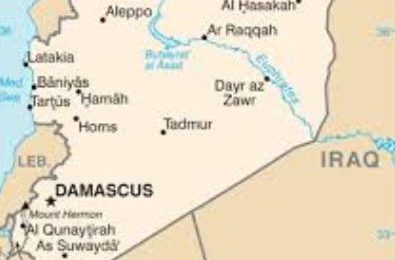
Turkey, the Kurds, and American Betrayal in Syria
The currently escalating conflict between the Turks and the Kurds in northern Syria is the latest in a long series of wars in which the dominant powers occupying ethnic Kurdish territory continue to keep the Kurds under their heel.
As in the many anti-Kurdish campaigns and wars in Iraq, Iran, Syria, and Turkey, the Kurds, who are a Sunni Muslim ethnic group separate from the majority Arab, Turkish, and Persian in the nations that currently divide the Kurds among their respective nations. Without going into the long and tragic history of the Kurds’ attempts to earn independence or even just autonomy from their oppressors, it should be noted that multiple times now, they have looked to the United States for aid and assistance, received it from the Americans, and then found themselves discarded when their usefulness to America’s foreign policy interests ended.
In the 1970s, in the midst of a major Kurdish rebellion in Iraq, they enjoyed significant help from the U.S. and America’s client state next door: Iran. The Iran of the Shah, not the Iran of the current Islamic Republic that is. In the 1970s, the Shah of Iran was a dictator who was allied to the West and in vigorous opposition to the Soviet Union. Iraq at this time, was run by the Baathist Party of Saddam Hussein, and was firmly in the Soviet orbit of convenient alliances. Iraq and Iran had significant border disagreements, particularly regarding the Shaat al-Arab waterway. The Iranians and America’s CIA supplied the Kurds with significant assistance, up to the point that Iran and Iraq came to an agreement on their mutual border, thereby cutting off aid for the Kurds. Saddam Hussein then smashed the abandoned Kurds.
Fast forward to the Iran-Iraq War of the 1980s, and the Kurds once again were in opposition to Saddam. At this point in time, the U.S. was providing some aid to Iraq as it battled the now hostile-to-the-U.S. Iranian regime. In 1988, Iraq used poison gas on the Kurdish town of Hallabja, killing at least 2,000 Kurdish civilians.
The U.S. government was very quick to assess blame for the attack on the Iranians, and later evidence proved it was the Iraqis who committed this war crime.
Fast forward to the Gulf War between Iraq and the United States in 1991. President George H.W. Bush called the Iraqi people to rise up against Saddam, including the northern Kurds and the southern Iraqi Shiites. They did rise in rebellion, just in time for the U.S. to conclude a cease-fire with Saddam. Despite the imposition of a later no-fly zone over the northern and southern parts of Iraq, the Kurds (and Shiites) faced the full fury of Saddam’s elite troops, and, again, were killed in large numbers.
Now, in 2019, after the Kurds of Iraq and northern Syria have fought side-by-side with American troops in the current War against the Islamic State, President Trump, in his spontaneous and unpredictable manner, has withdrawn American troops from positions near Kurdish and other anti-Assad Syrian forces, effectively inviting the Turks (who have fought against their own Kurds since 1984), to come into Syria and wipe out the Kurdish military forces that the Turks see as a threat.
The Kurdish people have time and again been given hope by America for assistance and aid, when it has been convenient for America. After this latest betrayal of an ally, what will our other “allies” in the Middle East, or other parts of the world think when American says “we will stand with you,” against a potential foe? Only the world’s bad actors, currently including Russia, Iran, and China, will benefit from this. Had American troops stayed in place in northern Syria, it is extremely unlikely that the Turks would provoke conflict with America. Only by giving the Islamist government of Turkish President Erdogan a green light to lay into our Kurdish allies, has President Trump allowed the current Turkish invasion and aggression.

I apologize if this is an inappropriate way of making contact with you.
I would like to make the following suggestion:
In the United States Army (Active Components) there are a small number of Military History Detachments augmented my more such units (Reserve Components) in the United States Army Reserve and the National Guard. I believe your viewers would be most interested in learning more about these small units and how they contribute to the collection, maintenance, and analysis of military historic materials.
Please do not hesitate to contact me if I can be of any assistance in this matter.
Cordially yours,
John Wm. Schiffeler
Somebody chose to leave out the PKK and their
Soviet assistance over the years, and their
genealogy of Communist ideology..
Smells like TDS to me.